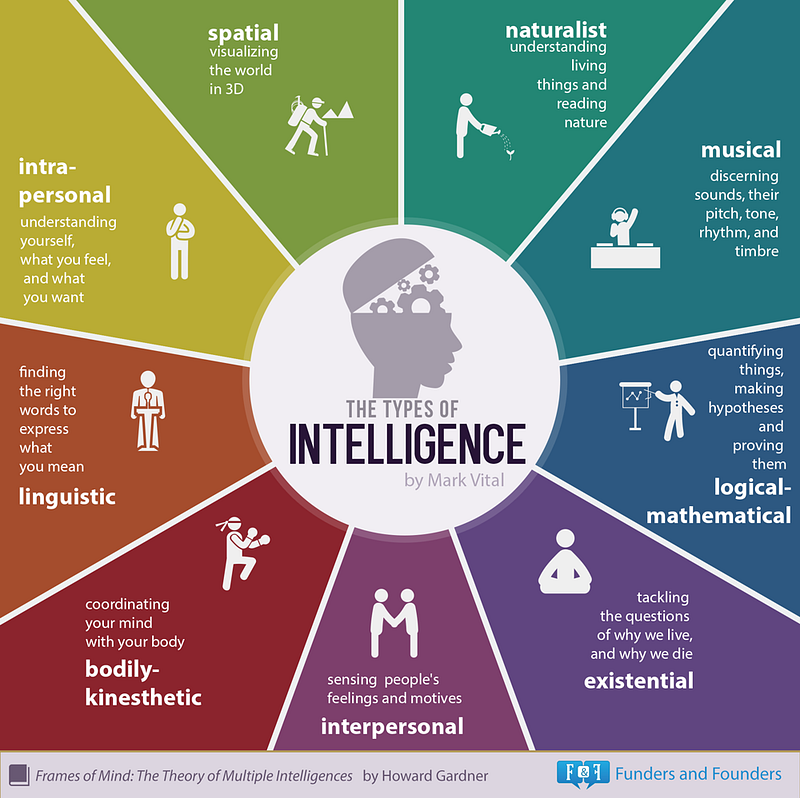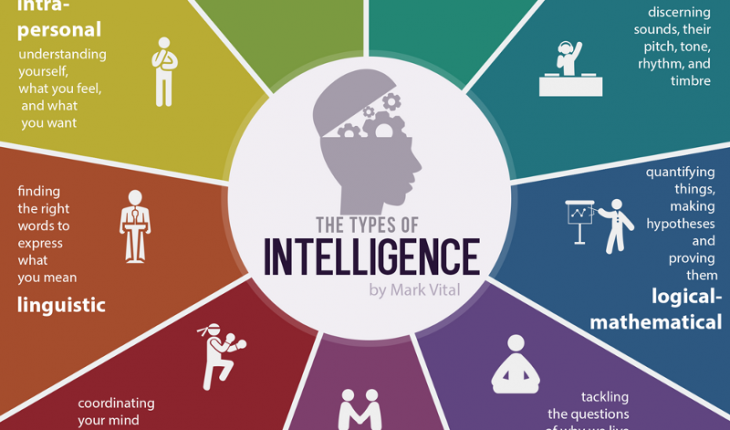If math or linguistics came easily to you, school was probably a far more enjoyable experience for you than others.
After all, these two types of intelligence are the primary focus of our educational systems. Other types of intelligence, like the ability to discern sounds or visualizing the world in different ways, are typically thought of as softer skills.
Not according to Howard Gardner. In his 1983 book Frames of Mind: The Theory of Multiple Intelligences, Gardner posited that in addition to linguistics and logical-mathematical intelligence, there are seven other types:
- Bodily-kinesthetic intelligence
- Musical
- Naturalist
- Interpersonal
- Intra-personal
- Spacial
- Existential
You might have at least some of each type of intelligence, but probably excel in one or two specific areas. If those areas aren’t either math or language, does it mean you aren’t an intelligent person?
Of course not.

We tend to think of things like musical ability, sports prowess and even math and language, to some extent) as skills — things that can be learned. That may be true, but people are complex and can have natural aptitudes and different types of intelligence in any or all of these areas.
A person with great intra-personal intelligence, for example, has a good understand of self, what they feel (and why) and what they want, as shown in the infographic above. Those with high bodily-kinesthetic intelligence are good at coordinating body and mind; these are your professional athletes, Olympians, etc.
Still, many argue that Gardner’s 9 types of intelligence aren’t really indicative of intelligence at all. Rather, they’re considered softer skills — things that can be learned, not natural abilities or aptitudes.
What do you think — are these all different types of intelligence? See if you recognize your own strengths in the infographic above and share your comments below.
About The Author
Larry Kim is the Founder of WordStream. You can connect with him on Twitter, Facebook, LinkedIn or Google+.
Originally published on Inc.com




